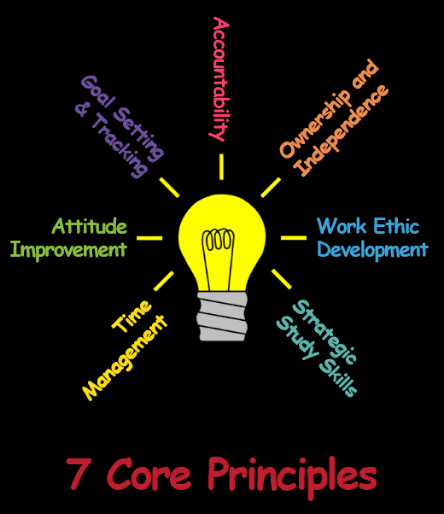Peak Academic 7 Core Principles
Peak Academic Coaching is an Academic Coaching & Executive Functioning Skills Development company that specializes in helping students improve their overall academic performance by coaching them in the development of academic and non-academic skill sets that will empower them to succeed in all areas of their academic careers. Give your child a competitive advantage in an increasingly competitive world through programs offered at Peak Academic Coaching. At PAC, we adhere to the implementation of seven core principles for building academically based success habits. Properly implementing the following foundational principles leads students to increased academic performance in and outside of the classroom.
Get Started Today







